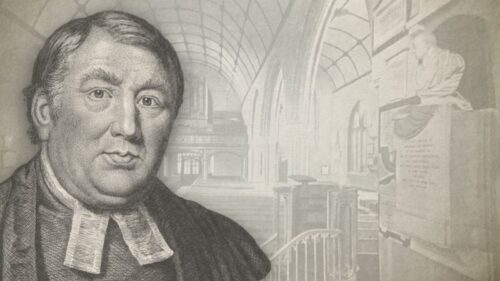
June 29—Morning Devotion
“And they sought him among their kinsfolk and acquaintance, and found him not.”—Luke 2:44, 45
May we not gather a lesson of sweet instruction from the anxious and fruitless search the parents made for Jesus in the days of his flesh? What kinsfolks and acquaintances shall we now search among for the Saviour? My soul, how little of Jesus is to be found in this Christless generation! What parlour conversation makes mention of his name? Is it not plain and evident, from the general, nay almost universal silence observed in all companies concerning his name, and offices, and characters, and relations, that Christ is not there? Shall we seek him among the professors of the gospel? Who are they that honour Jesus? Not they who deny his Godhead; not they who deny the influences of his Holy Spirit; not they who set up their own righteousness as part, or the whole of their justification before God. Jesus is not in that house, in that family, in that heart, among that people who live in sensuality, profaneness, and impiety. Where shall we seek Jesus? Blessed Lord, mine eyes are unto thee to be taught. I would say unto thee, in the language of the church, “Tell me, O thou whom my soul loveth, where thou feedest, where thou makest thy flock to rest at noon. Oh when I shall find thee without, I would lead thee, and bring thee into my mother’s house, who would instruct me; and I would cause thee to drink of spiced wine of the juice of my pomegranate.”
Robert Hawker (1753-1827) was an Anglican (High-Calvinist) preacher who served as Vicar of Charles Church, Plymouth. John Hazelton wrote of him:
“The prominent features…in Robert Hawker's testimony…was the Person of Christ….Dr. Hawker delighted to speak of his Lord as "My most glorious Christ.” What anxious heart but finds at times in the perusal of the doctor's writings a measure of relief, a softening, and a mellowing? an almost imperceptible yet secret and constraining power in leading out of self and off from the misery and bondage of the flesh into a contemplation of the Person and preciousness of Christ as "the chiefest among ten thousand and the altogether lovely." Christ and Him crucified was emphatically the burden of his song and the keynote of his ministry. He preached his last sermon in Charles Church on March 18th, 1827, and on April 6th he died, after being six years curate and forty-three years vicar of the parish. On the last day of his life he repeated a part of Ephesians 1, from the 6th to the 12th verses, and as he proceeded he enlarged on the verses, but dwelt more fully on these words: "To the praise of His glory Who first trusted in Christ." He paused and asked, "Who first trusted in Christ?" And then made this answer: "It was God the Father Who first trusted in Christ."
Robert Hawker on the Biblical Covenants (Complete)
Robert Hawker's Poor Man's Morning Portions





